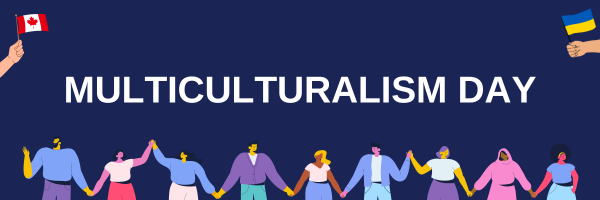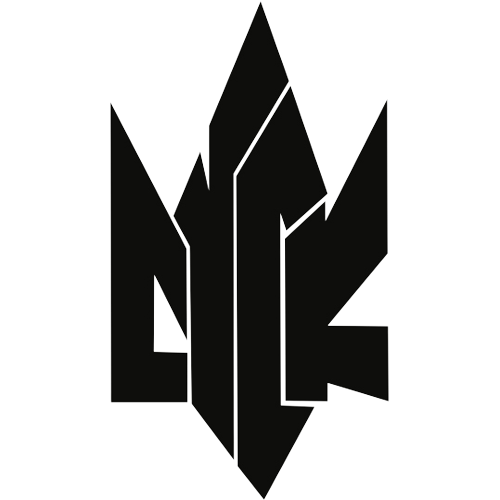By Valeriia Gusieva (Carleton’s Ukrainian Students’ Club)
On June 27, Canadians across the provinces celebrate Multiculturalism Day, a time to reflect on the diverse cultural communities contributing to our strong and vibrant Canadian society. Today, we focus on the Ukrainian diaspora, whose ongoing advocacy efforts actively shape Canada’s political and social future, a testament to the power of multiculturalism and social advocacy.
While the first settlements of Ukrainians on Canadian territory date back to the 1890s, the first attempts at Ukrainian advocacy effort started later during the period of the First World War when Taras Ferley, the lone Ukrainian in the Manitoba Legislature, vigorously protested the human rights violations of his countrymen that resulted in the suppression of Ukrainian press in Manitoba as ongoing fear of russian communism grown in Canada. While the events of the First and Second World Wars resulted in massive humanitarian crises and forced migration of Ukrainians out of their homes, it correlated at the time with the growing participation of Ukrainian voices in political life in Canada. Community organizing has always been crucial to ensuring that the Ukrainian language, culture and traditions continue to exist in the New World. In November of 1940, the Ukrainian Canadian Committee (UCC), known as the Ukrainian Canadian Congress since 1989, was established. The UCC, along with Anthony Hlynka, the MP for Vegreville, campaigned for the change in immigration policy in Canada and advocated for the federal government to allow the Ukrainian refugees who were displaced in Europe as a result of the Second World War to enter Canada. While the Ukrainian diaspora continued supporting newly arrived refugees, it also focused on cultural preservation.
Beginning in the 1960s, the federal government of Canada actively tried to reconcile the question of Canadian identity represented by values of bilingualism and biculturalism to reflect the Anglo-Canadian and Anglo-French populations. However, the Ukrainian community at the time actively advocated for increasing the Ukrainian language at Canadian schools and recognized that Canadian society was not formed by only two ethnocultural communities. As we have seen throughout history previously, Ukrainian Canadians were not afraid to voice their needs as a minority community and advocate to take up a special place within the newly formed Canadian society. Senator Paul, a proud Ukrainian, in his speech on March 3, 1964, in the upper house of the federal parliament, highlighted that there is a third element of Canadian society: allophones – representatives of national minorities of the country who live mainly in western regions. Prime Minister Pierre Trudeau, in October 1971, at the Triennial Congress of Ukrainian Canadians in Winnipeg, announced the policy of multiculturalism. It is difficult to undermine the advocacy effort and the voices of Ukrainian Canadian politicians who actively lobbied the Canadian government to recognize the uniqueness of Canadian identity as multicultural rather than bicultural as was initially perceived.
Currently, as Ukrainians have been displaced again as a result of russian aggression, Ukrainian Canadians are once again forced to use their voices to ensure that displaced refugees, which consist primarily of women and children, are welcomed in the safety of Canada. Members of various organizations, including but not limited to the UCC, SUSK, Ukrainian National Federation of Canada,Canada-Ukraine Foundation,League of Canadian Ukrainian women and many others continue to draw attention to the human cost of the war in Ukraine and the needs of recently arrived newcomers to Canada.
The Day of Canadian Multiculturalism is another opportunity for us, Ukrainian Canadians, to express our gratitude for the support we have received and continue to receive from all members of Canadian society. Thank you!


